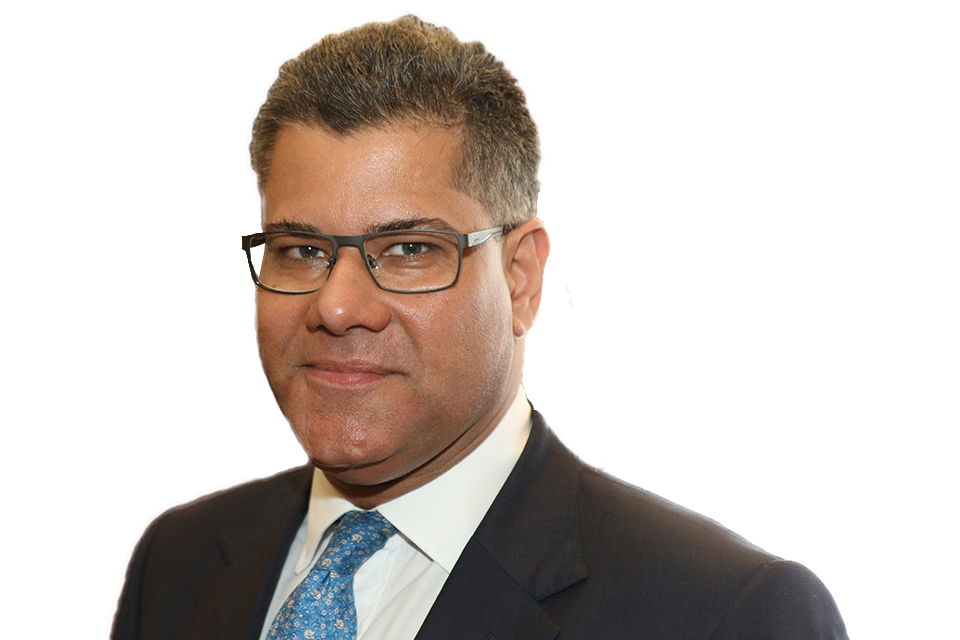Rachel Reeves – 2020 Speech on Covid-19
Below is the text of the speech made by Rachel Reeves, the Labour MP for Leeds West, in the House of Commons on 11 May 2020.
I thank the Minister for that thoughtful opening speech. We all need the Government to get this right. Labour has been clear: we will always put the national interest first. We will support the Government when they get it right but challenge them to do more when that is needed.
We all know how hard lockdown has been, especially for those who fear for their jobs and their businesses; the elderly; the lonely; and those living with an abusive partner or carer. At the moment, most grandparents want nothing more than to be able to hug their grandchildren. Thousands of people are missing out on the chance to say goodbye or even to hold the hand of the person they love in a care home. The same applies to the ambiguous situation relating to funerals and cremations, which is causing enormous pain and distress to so many families. It is in depriving us of these poignant moments—opportunities to hug, to hold and to say goodbye—that the impact of the virus causes the most distress.
There are so many profound social costs, and it all has to be balanced with the huge challenges and risks faced by people working in health and social care. We all want the Government to get this right, but, frankly, the Government’s response in the past 24 hours has been a shambles.
Last Thursday, the Government’s briefings to newspapers led to headlines proclaiming that we could look forward to “Happy Monday” and “Lockdown Freedom”, the day before a sunny bank holiday weekend. When I saw those headlines, I recalled the world war two poster in my history class at secondary school that said, “Careless talk costs lives”. I wonder sometimes whether the Government pause to contemplate the health impacts of some of their briefings and statements.
Last night’s statement by the Prime Minister was a chance to provide some clarity about the situation, but it obscured as much as it revealed. This morning, the Foreign Secretary told “Today” programme listeners that they were free to see both their parents at the same time. Almost immediately afterwards, it was clarified that people may see only one parent at a time. The Foreign Secretary then told Sky News that people should return to work from Wednesday, but the press release issued by Downing Street alongside the Prime Minister’s statement clearly stated that people should be encouraged to return to work from Monday. If senior members of the Cabinet struggle to follow the advice, what are the rest of us meant to do?
A four-nation strategy is essential to ensure a coherent and consistent message. It has served us well so far, so why is England now pursuing a different strategy from Northern Ireland, Scotland and Wales? If someone lives in Bristol but works in Cardiff, should they be going to work? What about if someone lives in Berwick but works in Edinburgh?
When it comes to Northern Ireland, the Government must also consider cross-border co-operation. Northern Ireland is unique in that it shares a land border with the Republic, so close co-operation with the Irish Government and the Northern Ireland Assembly is vital to ensure a joined-up approach to effectively combating the virus, particularly with regard to contact tracing. The UK has the highest death toll in Europe. That calls for greater care, not greater risks.
The most substantive change in Government advice today is that workers who cannot work from home should return to work. We want workers to earn an income and businesses to thrive, but for that to happen, workers need to know that they and their families will be safe. Businesses want that knowledge and security as well.
Let us be clear that the biggest risk to our economic security and recovery would be decisions that led to a second peak of the virus, so it is deeply worrying that workers were asked last night to return to work today with no guidelines published with regard to safety in the workplace. If someone has been told to return to work, but lives with a partner with a pre-existing condition or an elderly parent, what are they meant to do?
What if someone has a school-age child but is now expected by the Government and their employer to return to work without the childcare to be able to do that? Can people still be furloughed? Is that at their employer’s discretion? If people cannot work through no fault of their own, will they be required to go on to statutory sick pay?
Who will assess whether a workplace is sufficiently safe? Is it up to the individual employee? I refer the Minister to section 44 of the Employment Rights Act 1996, which permits an individual employee not to return to work without risk of detriment if they reasonably believe that adequate safety measures are not in place. I hope that employers and Ministers will protect those rights.
Meanwhile, workers are told to avoid public transport if possible, but for millions of people in the UK, it is not possible to get to work any other way but by public transport. We have already seen bus drivers in London lose their lives to covid-19. People need to know that they can go to work without endangering themselves, or indeed others. If we are to balance concern for the economy with concern for public health, the Government should bring unions, business leaders and scientists together to develop a national safety standard. The safety of workers and their families is not, and can never be, an optional extra.
It is vital that the furlough scheme continues to support workers, including enabling people to work part time, particularly if businesses are unable to operate at full capacity. We need to hear more from Ministers about ongoing support until the time is right to operate at full capacity for some of the hardest-hit sectors, such as hospitality and travel. We need to support areas such as our coastal communities, which are so dependent on tourism.
The impact of the virus exposes deep inequalities in our society. The poorest areas of the country have been hardest hit. Lower earners are most exposed while the better-off are insulated from the biggest threats. Of the bottom 50% of earners, just one in 10 can work from home. At the top, it is five times that.
This crisis has shown who the real key workers are, from NHS staff to care workers, supermarket workers, cleaners, delivery drivers and bus drivers. They are often underpaid, under-appreciated and undervalued, and they have been asked to put their lives at risk while keeping others safe. Now, more working people who do manual jobs in manufacturing, food processing and construction are being asked to risk their health, and that of their family, while those doing office jobs, which are often better paid, can work from home and face fewer risks.
Black and minority ethnic Britons are disproportionately at risk. We know that black Britons are four times more likely to die from this virus compared with white people. We need a public inquiry into that, which Baroness Lawrence called for today, and we need urgent action to protect the most vulnerable from this virus. Coronavirus did not cause those inequalities, but it has thrown a sharp light on them. We must not let them deepen even further.
In our care homes the spread of the virus continues and the death toll is still too high. Half of workers in care homes earn less than a real living wage, and a quarter are on zero-hours contracts. Many have died. Last Wednesday, the Prime Minister reported that 29 care workers have died since the start of this crisis, but data from the Office for National Statistics show that there were 131 coronavirus-related deaths among social care workers up to 20 April. According to the National Care Forum, just one in five care workers with symptoms have been tested, and they still lack priority testing for coronavirus. Those who dedicate their lives to caring for others, and who care for the sick and the dying whose relatives cannot be with them, are being left without adequate protection, and we are only beginning to know the real cost.
One reason why the lockdown rules are causing so much worry is that new infections and deaths are still at higher levels than when we went into lockdown. The test and trace strategy is still a mess. MPs from across the House will have constituents who have been waiting for well over 48 hours to get their results, and some who have been waiting for more than a week. We see reports of tests having to be flown to the United States because we lack the capacity here. How did we get into that position? Without a test, trace, and isolate strategy it is almost impossible to identify a new spike in infections, or to do anything about it. The Government need to sort that out. Relaxing lockdown will work only if it is sorted out.
At some point we will come through to the other side of this virus, and we will go about rebuilding our lives, our communities, and our economy. The recovery will not be easy, and it will require boldness and imagination to build something better. The contribution of the British public and all our key workers has been immense, but the crisis has revealed huge injustices and inequalities. We deserve a fairer country—that will be Labour’s mission, and I hope it will be the Government’s mission too.


